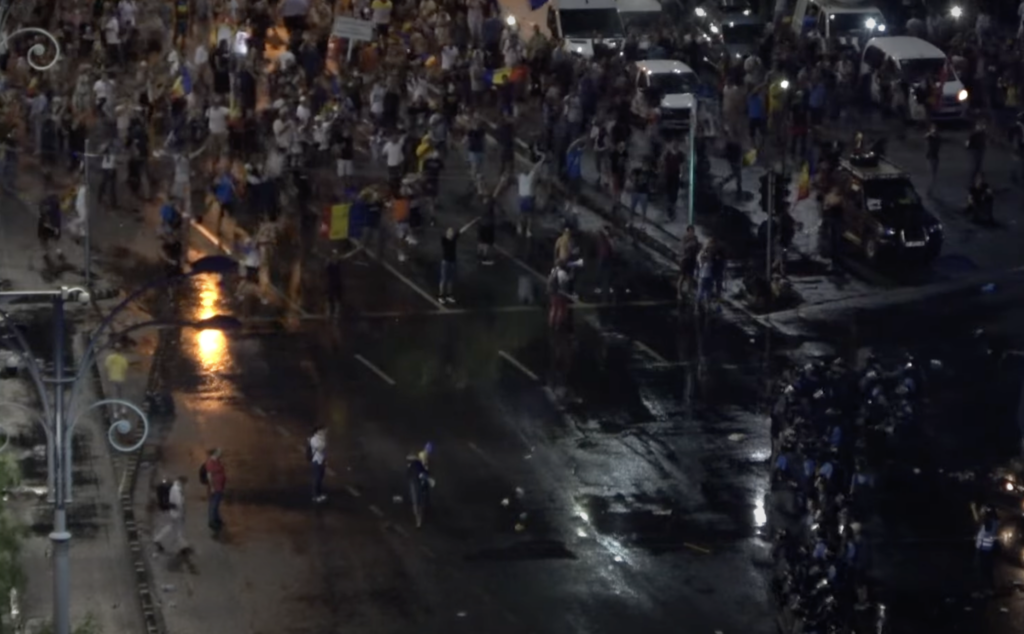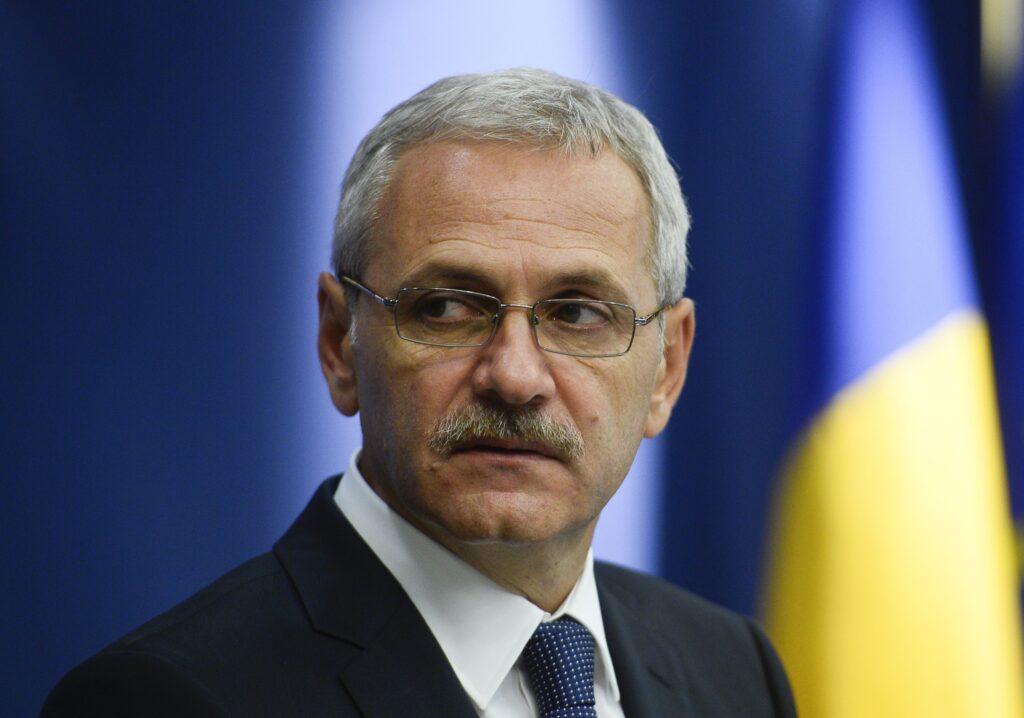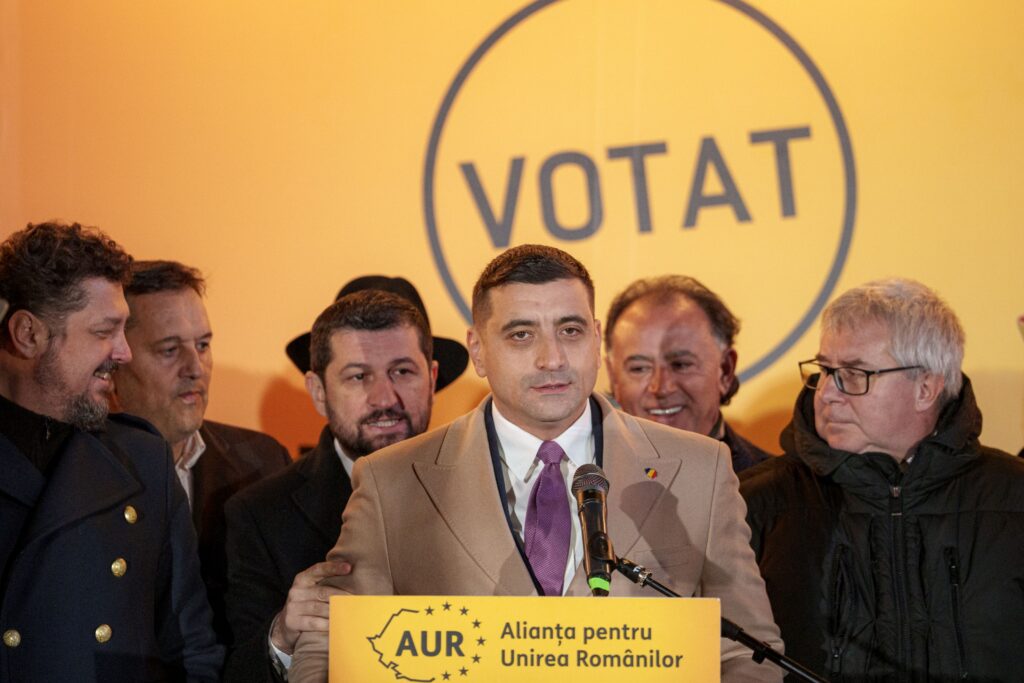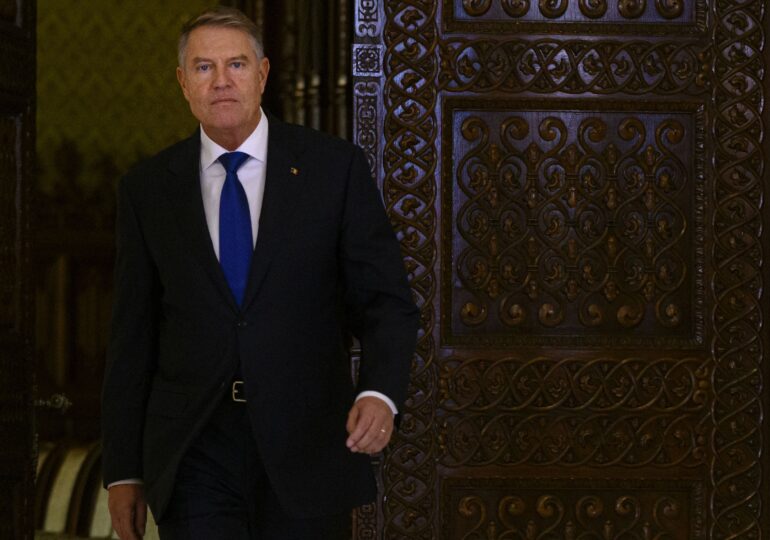Eduard Hellvig, the former director of the SRI, answered questions from the parliamentary committee on intelligence services control for nearly nine hours. It was a record hearing in the post-December democracy of a secret service chief, taking place in the first half of September 2018.
The committee chairman was Deputy Claudiu Manda, a subdued individual used by Liviu Dragnea, the former PSD president, in his battle against Klaus Iohannis and the heads of intelligence agencies.
Manda married Olguța Vasilescu, the mayor of Craiova, and has been shielded by the PSD in the European Parliament since 2019.
The hearing on September 13, 2018, marked the climax of a major confrontation between the PSD, which controlled about 60% of parliament following the 2016 elections, and Klaus Iohannis, the President of Romania who came to power in 2014 on a reformist wave.
"Mr. President Manda will provide you with all the details regarding what was agreed and discussed in the committee. I hope that I have been extremely coherent and concise so that my fellow parliamentarians have understood what I communicated. (...) I also mentioned the protests, of course," stated Eduard Hellvig at that time, the director of the SRI, indicating that some questions referred to August 10 and the tensions that followed the brutal intervention by law enforcement forces.

PSD, Iohannis' Enemy, for a Short Period
At that time, Liviu Dragnea sought to dismantle the opposition on the streets by suppressing a huge demonstration against the PSD government and creating a favorable context for suspending Iohannis, but the latter managed to survive, aided by popular support as well as institutional support - mainly from intelligence services and part of the judiciary system - which did not want Romania to enter a zone of political instability and possibly establish an authoritarian regime similar to the Hungarian model targeted by the Social Democrats led by Dragnea.
However, the major confrontation between Iohannis and the PSD, which took place in 2017 and 2018, led the incumbent president to seek a way to erode the PSD's influence in Romanian politics.
Thus, both his campaign for re-election in 2019 and the one for the parliamentary elections in 2020 were based on a harsh attack and criticism against the Social Democrats, weakened after Dragnea's arrest and plagued by internal struggles.

However, the pandemic and the social crisis caused by restrictions, fear, and excessive health decisions created great frustration in society and tensions, so Iohannis' plan to create a large anti-PSD political alliance largely failed.
Although in 2020, the PNL and USR managed to form a parliamentary majority and govern together for a year, the effects of the pandemic quickly eroded the liberal government, and in the fall of 2021, Iohannis decided to bring the PSD into government alongside the liberals.
The First Experience of Election Manipulation
In a period of just three months in the second half of 2020, a mysterious phenomenon occurred, never fully explained - the AUR party, an extremist and marginal formation led by George Simion, a leader involved in various political games in the Republic of Moldova and suspected of connections with Romanian and foreign intelligence services, garnered 10% of the Romanian voters' support and entered Parliament.

His success was meteoric because in the summer, during the local elections, AUR obtained a score below 1.5%, not even having councilor lists in all constituencies.
In December 2020, the Romanian public witnessed, for the first time, the overnight emergence, following manipulations and machinations on social networks, of marginal leaders and obscure formations.
Today's Georgescu phenomenon is a reissue of the operation from the previous parliamentary elections. Both then and now, there were indications of involvement of internal influence networks with connections to intelligence services, as well as support from outside Romania.
In general, a successful strategy of manipulation and political promotion used in one country is quickly adopted and spreads everywhere, being analyzed and developed by both private agents and those working in intelligence services.
As observed in the case of Georgescu, behind such a campaign lies a combination of internal and external influence agents with various connections in institutions and various financial support.
AUR's meteoric rise helped Klaus Iohannis, who scored a significant victory in the 2020 parliamentary elections - removing the PSD's dominance in society, with the Social Democrats receiving 29% of the votes, followed by PNL with 25% and USR with 15%.
The War Iohannis Did Not Expect
Thus, the incumbent president gained control over the parties, making it impossible to create an alliance that would jeopardize Iohannis' second term.
Certainly, Russia's invasion of Ukraine once again disrupted Iohannis' plans, just as the pandemic did.
The war caused a major upheaval in Romania's political system. The fact that under public pressure, over a million refugees from the neighboring country were saved, sheltered, and assisted, forced the authorities, as well as Iohannis, to take an unequivocal stance, as they were initially tempted at the beginning of the crisis, on Ukraine's side and that of Volodymyr Zelensky.
Romania has thus become an important actor in providing political, economic, and military support to Ukraine by the US and NATO countries.
This has not gone unnoticed, and Russia has begun to reactivate its influence networks in Romania, massively financing political leaders, parties, non-governmental organizations, and conducting extensive propaganda operations on social networks.
Iohannis and his government did not react, nor did they have or develop a strategy to deter Russian infiltrations and propaganda, relying on the belief that the war would end quickly, so no "additional effort" beyond the usual would be needed.
The President's Lack of Interest Led to Disaster
The decision not to get involved, followed by the secrecy of actions supporting Kyiv, were major errors with strong and visible implications for Romania's security.
Klaus Iohannis showed superficiality in addressing the border crisis, believing he had the necessary tools to keep the situation under control, but he failed to realize the strength and persistence of Russia's influence in Romania and how little he did to undermine and minimize it.
For example, our country's authorities expelled 10 Russian diplomats at the start of the war, compared to Poland, which sent 40 back to Moscow.
In terms of proximity, the communist past, and Kremlin influence, we are the country with the fewest actions to protect society from Russian infiltrations.
The political crisis caused by the Constitutional Court's annulment of the elections to prevent a candidate favored by Putin from reaching the Cotroceni Palace is entirely due to Klaus Iohannis' inability.
The incumbent president did not understand the subtle mechanisms of Romanian society, the political movements after 1990, the historical connections with Russia of certain leaders, intelligence agents, and public figures, failing to propose a defense strategy against the well-targeted and well-funded operations of the Kremlin.

